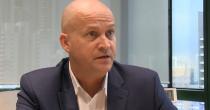- May 13, 2020
- views
Philippines extends lockdown in capital anew but eases measures
The Philippine government has moved to extend and modify the enhanced community quarantine (ECQ) in three parts of the country, while easing and removing most restrictions in other areas.
Presidential Spokesperson Harry Roque announced yesterday at a news conference that the capital region of Metro Manila, the province of Laguna and the city of Cebu will transition into “modified enhanced community quarantine” (MECQ) from 16 May, extending the lockdown to the end of the month but with some restrictions eased.
Under MECQ, movement will remain restricted for essential services and work. Transportation would likewise be limited for essential goods and services, while physical classes will remain prohibited. Manufacturing and processing plants will be allowed to reopen at 50% capacity. The Philippine government has yet to finalise which industries will be allowed to operate.
Seven regions – Regions II, III, IV-A, VII, IX, XI and XIII – will move into “general community quarantine” (GCQ) after 15 May. In GCQ, movement will be allowed for services and work both within and outside the zone, with limited transportation available to support both private and government operations. Government offices and industries are allowed to have up to maximum 75% of its workforce. Face-to-face learning shall likewise be prohibited, but flexible learning arrangements will be allowed.
All other parts of the country will move to modified GCQ (MGCQ) starting 16 May, where socioeconomic activities will be permitted provided minimum public health standards are observed.
The national government warned that despite the easing of measures, it does not mean that the virus is no longer a threat. "The easing up of the restrictions does not mean COVID is gone... COVID is very lethal. Do not gamble with COVID because once you get infected, it can go either way. You either go to the funeral home or sleep at home. If you sleep at the funeral home, you won't wake up anymore. They will fetch you there to be cremated,” said Philippine President Rodrigo Duterte.
The relaxation of measures in the country is a bid to restart the country’s economy, but fears over a possible second wave of infections remain prevalent among the public. Duterte himself has said that the country cannot afford handling a second or a third wave.
The Philippines has also failed to meet some of its testing targets in the past. Various issues – from lack of personal protective equipment to delays and corruption in relief payments – have hounded the government’s response to the pandemic.
Experts from the University of the Philippines also raised the alarm on discrepancies and inconsistencies over data that the Department of Health presents regarding COVID-19 patients. In its policy note published yesterday, 12 May, the state university found that 45 cases had their sex changed (male to female or vice versa), 75 patients had their age modified (either got older or younger by decades), 516 patients had their residence changed to different cities including imaginary districts, while one patient initially reported dead was reclassified as alive the next day.
As of 12 May, the Philippines has recorded over 11,000 confirmed cases and more than 700 deaths.


